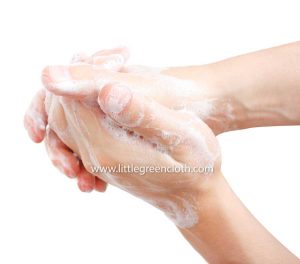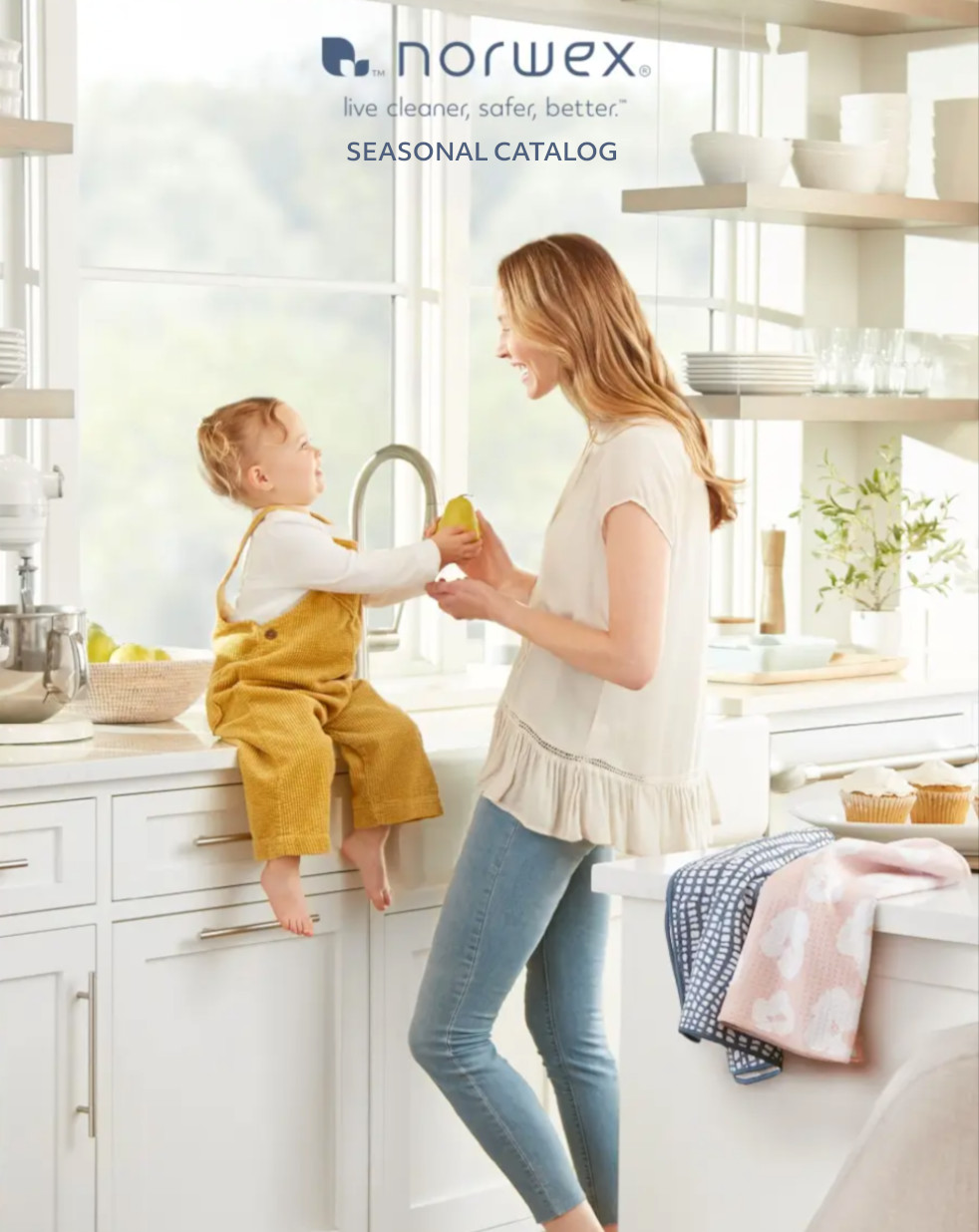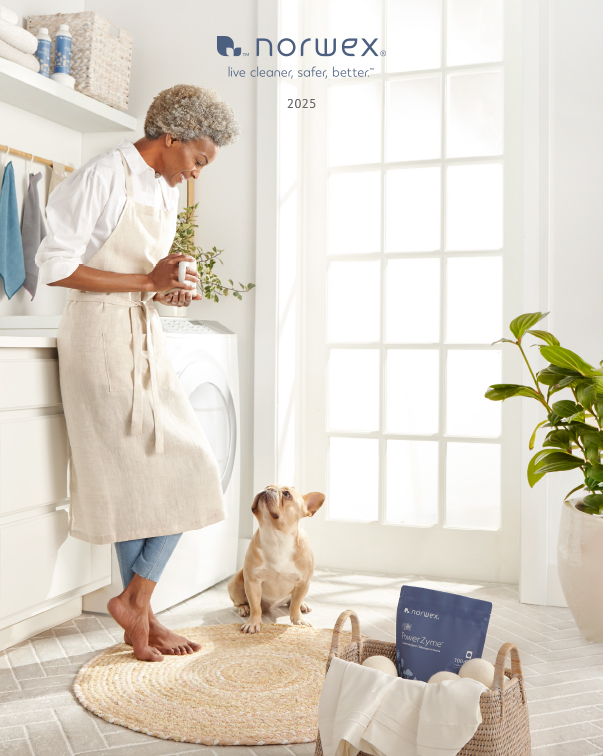 It’s almost instinctive… “Wash your hands before supper,” you say to your kids as they come in the house after playing. Good hygiene, right? Perhaps… but read on and decide for yourself.
It’s almost instinctive… “Wash your hands before supper,” you say to your kids as they come in the house after playing. Good hygiene, right? Perhaps… but read on and decide for yourself.
Or you’re on out and about and you pass around the travel-size “anti-bacterial soap” before a restaurant meal (oh c’mon, you know what I’m talking about). Nothing wrong with that…, right?? Gotta have clean hands…
Well, what you need to watch out for is the chemical compound Triclosan. Triclosan is one of the anti-bacterial soap ingredients found in most cosmetic and personal hygiene products. According to the U.S Geological Survey water testing research, this chemical is included among the Top 10 major contaminants in U.S water ways and is considered one of the major environmental hazards that pass up the food chain in our bodies. Huh?!
Research conducted at Virginia Tech University reported that Triclosan found in anti-bacterial soaps produces a chloroform gas when it comes into contact with chlorinated tap water. It is considered to be toxic and may be carcinogenic when inhaled and absorbed by the skin, specifically when using warm water while bathing. Oh, great…
Yep, you may have even heard about this but maybe you didn’t really believe it or understand why. So let’s help to break this down for you. Since its introduction in the 1970’s Triclosan has raised concerns about dangers to health and the environment. Triclosan can disrupt endocrine systems and has been connected to allergies, asthma and development of skin diseases such as eczema. Furthermore, bacteria once exposed to Triclosan could potentially lead to resistance to antibiotics. Drug resistant bacteria have been known as a major health threat by public health experts and have caused alarm because of its increased levels of resistance to multiple antibiotics. So, does that make anti-bacterial soap unsafe to use?
Antibacterial hand disinfectants are depicted as easy to use and convenient in TV commercials and advertisements but, in actuality, pose dangerous side effects. The FDA (Food and Drug Administration) stated that there is really no advantage or benefit for using anti-bacterial soaps. Wow! The FDA has also raised concerns that these toxic chemicals may accumulate in the environment and promote potentially dangerous resistant bacteria and germs as was mentioned above. Highly Toxic: Levels of Triclosan present in the environment are sharply increasing which is quite alarming. Triclosan has been found to be highly toxic to different types of algae, and has been detected at high concentration in earthworms. Environment Canada categorized Triclosan as potentially toxic to aquatic organisms, bio-accumulative, and persistent. In other words, it doesn’t easily degrade and can build up in the environment after it has been rinsed down the shower drain. *
So what can I do to keep bacteria and germs away safely?
The truth is, while many thought they were keeping their families safe from contracting diseases by using anti-bacterial soaps, they were exposing them to more unnecessary chemicals. Because of recent studies linking the chemical compound Triclosan to serious illnesses, the FDA says that using soap and water and proper hand-washing is a safer option.
A great product for hand washing is the Norwex Peppermint Foaming Hand Wash. You can use it in the bottle it comes in, or put it in a pretty bottle and dress up your bathroom! The Norwex Hand Wash does NOT contain parabens, formaldehyde releasers, or triclosan.
Another great option is the Norwex Travel Cloth set! Whenever we go to a restaurant, I simply pull out a travel cloth and wipe the seat, the table, and anywhere my kids plan to put their hands (think high chairs too!). That way I know the bacteria is being picked up and wiped completely away, without leaving behind a residue or any harmful product.
Getting back to basics is what is being promoted again to guard one’s self from infectious diseases. Basic hand-washing, instead of exposure to harmful chemical compounds, is the best measure for protecting against germs and disease.
Thanks for taking the time to educate yourself on the perils of antibacterial soap. Please CONTACT ME with any questions or to learn more about Norwex. Thanks for stopping by!
~ Suzanne
References:
www.theglobeandmail.com
www.beforeitnews.com
www.foxnews.com
www.articles.mercola.com
http://www.beyondpesticides.org/antibacterial/environmental/





Thanks for this post. I hope more people will realize the trouble with Triclosan and switch to chemical free soaps rather than anti-bacterial soaps. Our society has over-used so many products, and I’m glad that we are finally gaining some increased awareness of the fact that simple, natural products are the best ones for us.
The travel pack of cloths looks great. I have been looking for something more environmentally friendly to take on car trips and when we go camping as a family. We go through way too many paper towels! And I don’t like to use anti-bacterial products for the reasons you mention above.
Wow I am shocked that such a harmful chemical is allowed to be in anti-bacterial soaps! It is unfortunate that many people who believe that anti-bacterial soaps are good won’t know what kind of damage they are doing to their bodies! At least the Norwex soap is a solution to this issue! Thanks for the post! I think I am going to dispose of a few soap bottles now.
I have always stayed far away from anti-bacterial soaps for the reasons that you mentioned, and I think many others would too if they knew what kind of harm they were doing. I am going to get some of the Norwex soap for my friends who are oblivious to the harm that they are causing themselves.